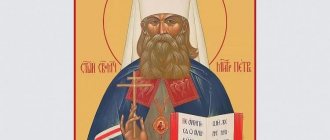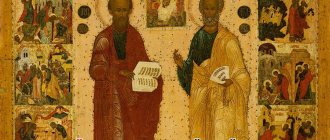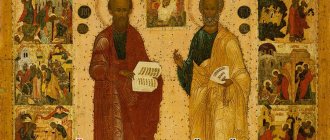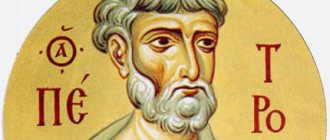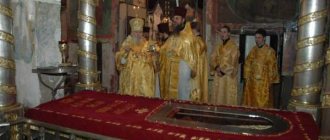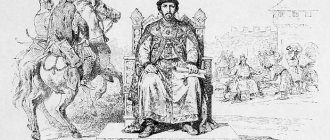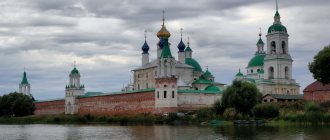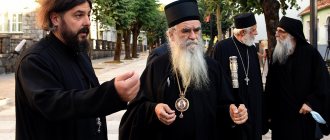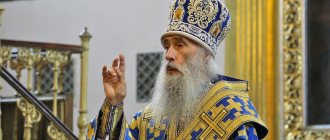On Wikipedia there are articles about other people with the name Pavel and the surname Ponomarev.
Should not be confused with Archbishop Pavel of Yaroslavl and Rostov (1745-1806).
| His Eminence | ||||||||||||||||||||||||||||||||||||||||||||||||||||||||||||||||||||||||||||||||||||||||||||||||||||||||||||||
| Metropolitan Pavel | ||||||||||||||||||||||||||||||||||||||||||||||||||||||||||||||||||||||||||||||||||||||||||||||||||||||||||||||
| ||||||||||||||||||||||||||||||||||||||||||||||||||||||||||||||||||||||||||||||||||||||||||||||||||||||||||||||
Biography[ | ]
Born into a working-class family. Studied in high school. After graduating from high school, he served in the Soviet Army. After demobilization, he graduated from a vocational technical school and worked as a mechanic and driver.
In 1973 he entered the Moscow Theological Seminary, from which he graduated in 1976.
In October 1977, he was accepted into the brethren of the Trinity-Sergius Lavra, and on December 17 of the same year, the abbot of the Lavra, Archimandrite Jerome (Zinoviev), was tonsured into the mantle with the name Pavel in honor of the Supreme Apostle Paul.
On March 5, 1978, in the academic Intercession Church of the Trinity-Sergius Lavra, Archbishop Vladimir (Sabodan) ordained him to the rank of hierodeacon, and on May 6 of the same year - to the rank of hieromonk.
In 1979-1981 - assistant of the DECR MP.
In 1980 he graduated from the Moscow Theological Academy with a candidate's degree in theology.
On September 15, 1981 he was sent to the Russian Spiritual Mission in Jerusalem. Since July 16, 1982 - Deputy Head of the Russian Spiritual Mission in Jerusalem.
In 1983, Patriarch Diodorus of Jerusalem elevated him to the rank of abbot.
On July 29, 1986, he was appointed head of the Russian Ecclesiastical Mission in Jerusalem, and therefore on August 15 of the same year he was elevated to the rank of archimandrite. On July 19, 1988, he was relieved of his post as head of the Russian Spiritual Mission in Jerusalem.
On August 26, 1988, he was appointed abbot of the Pskov-Pechersky Monastery. Under him, a rich library of ancient handwritten and printed books was returned to the monastery from the University of Tartu into the property of the monastery. An important merit of Archimandrite Pavel (Ponomarev) was the revival of large-scale spiritual, educational and social service, which became possible after the celebration of the 1000th anniversary of the Baptism of Rus'[1].
Episcopal ministry in the USA[ | ]
On February 19, 1992, by a resolution of the Holy Synod of the Russian Orthodox Church, he was determined to be Bishop of Zaraisk, vicar of the Moscow diocese, administrator of the Patriarchal parishes in the USA and temporarily in Canada. On March 21, 1992, he was named, and on March 22 of the same year he was consecrated Bishop of Zaraisk, vicar of the Moscow diocese, administrator of the parishes of the Moscow Patriarchate in the USA and Canada. The consecration in the Epiphany Cathedral was performed by Patriarch Alexy II, Metropolitans of Krutitsky and Kolomna Yuvenaly (Poyarkov), Vladimir (Sabodan) of Rostov and Novocherkassk, Vladimir (Kotlyarov) of Pskov and Velikoluksky, Archbishop of Solnechnogorsk Sergius (Fomin), Bishops of Istra Arseny (Epifanov) and Podolsk Victor (Pyankov).
Arrived in the US after Easter. Since very few people went to the cathedral in New York in the early 1990s, he devoted a lot of time to the Patriarchal parishes (there were 31 of them then), which he often visited. He also visited Patriarchal parishes in Canada and Mexico[2].
He communicated with representatives of the Russian Orthodox Church Abroad (ROCOR): he repeatedly met with Bishop Mitrofan (Znosko-Borovsky) and Bishop Hilarion (Kapral)[2].
Episcopal ministry in Austria and Hungary[ | ]
On December 29, 1999, he was appointed Bishop of Vienna and Austria with the assignment of archpastoral care of the parishes of the Hungarian deanery[3][4].
On April 19, 2000, the parishes of the Hungarian Deanery were transformed into an independent Budapest and Hungarian Diocese, with Bishop Paul receiving the title "Viennese and Budapest".
On February 23, 2001, he was elevated to the rank of archbishop.
At the Ryazan department[ | ]
On May 7, 2003, by decision of the Holy Synod of the Russian Orthodox Church, the Archbishop of Ryazan and Kasimov was appointed[5].
On October 5, 2011, in connection with the formation of the Kasimov and Skopin dioceses, the title was changed to Ryazan and Mikhailovsky
[6]. From October 6, 2011, he was the head of the newly formed Ryazan Metropolitanate, and therefore on October 8, in the Assumption Cathedral of the Trinity-Sergius Lavra, he was elevated to the rank of metropolitan[7].
Ministry in Belarus[ | ]
On December 25, 2013, he was appointed Metropolitan of Minsk and Slutsk, Patriarchal Exarch of All Belarus[8]. O[9].
On January 5, 2014, the first Sunday liturgy took place in the Holy Spirit Cathedral in Minsk with the new head of the Belarusian Orthodox Church. Metropolitan Philaret was unable to attend due to illness, and the parting word from Metropolitan Philaret to Metropolitan Paul was read by Archbishop Gury of Novogrudok and Lida[10][11].
The appointment of a person without Belarusian citizenship and knowledge of the Belarusian language as head of the Belarusian Orthodox Church was criticized by a number of public activists in Belarus. The Metropolitan promised to receive a Belarusian passport and study the language[12]. He opposed the creation of a “national Belarusian church”: “...today, under the plausible pretext of freedom, independence, they are trying to impose a new idea that does not unite people, but divides them”[13]. He called the Uniates a “sectarian organization.” The Metropolitan's attitude towards the Belarusian Uniates has been criticized by Belarusian Christian Democrats[14]. He had a positive attitude towards services in the Belarusian language; o[15].
On August 10, 2022, Metropolitan Pavel congratulated Alexander Lukashenko on his victory in the presidential elections. However, having received information about subsequent events in Belarus, he apologized for the congratulations; after watching a video about the arrest of protesters, “he was outraged, horrified and upset”[16]. Priest Alexander Shramko, who became famous for his opposition views, noted that Metropolitan Pavel “hesitated, doubted, asked for forgiveness, held prayer services, and did not take action against some sympathetic protests of the priests. And in general he was not particularly in honor of the dictator.”[17]
During the tragic events in Belarus in August 2022, Metropolitan Pavel visited people in hospitals who were injured during protests. He recalled that “The Church... condemns any violence, stands with all people, shares their pain, empathizes with their suffering, prays for them and for their loved ones.”[18]
From 2022[ | ]
On August 25, 2022, the Holy Synod of the Russian Orthodox Church accepted the petition of the Patriarchal Exarch of All Belarus, Metropolitan Pavel of Minsk and Zaslavsky, for dismissal from office. Metropolitan Pavel was appointed Metropolitan of Ekaterinodar and Kuban, head of the Kuban Metropolis[19][20].
On April 15, 2022, in connection with the retirement of Metropolitan Juvenaly (Poyarkov), he was appointed Metropolitan of Krutitsky and Kolomensky, Patriarchal Vicar of the Moscow Metropolis, and a permanent member of the Holy Synod[21]. Since June 4, 2022, he has been rector of the Assumption Cathedral in the city of Kolomna, Moscow region[22].
On October 21, 2022, he was appointed rector of the Russian Orthodox University. On November 30, 2022, based on the decision of the Council of Founders of the University dated November 10, 2022, Metropolitan Pavel officially assumed the position of rector[23]. On December 30, by decree of the Patriarch of Moscow and All Rus' Kirill, he was appointed rector of the Patriarchal Metochion of the University Church in honor of the Apostle and Evangelist John the Theologian near Elm in the city of Moscow[24].
Bishop Veniamin was appointed Patriarchal Exarch of All Belarus. What is known about him?
Bishop Benjamin. Bishop Benjamin of Borisov and Maryingor was appointed Patriarchal Exarch of All Belarus, Metropolitan of Minsk and Zaslavl, retaining temporary control of the Borisov diocese. This was announced on his Telegram channel by the head of the Synodal Department for Relations of the Church with Society and the Media, Vladimir Legoyda, with reference to the decision of the Holy Synod of the Russian Orthodox Church, which was adopted on Tuesday, August 25.
Thus, for the first time in the history of the BOC, a Belarusian metropolitan headed it.
Bishop Veniamin (in the world Vitaly Ivanovich Tupeko) was born on September 16, 1968 in the city of Luninets, Brest region. After graduating from school in 1985, he entered the Belarusian State University at the Faculty of Radiophysics and Electronics. In 1987-1989 he served in the Armed Forces. Then he continued his studies at the university. In June 1992, he received a diploma as a radiophysics engineer.
In August 1992, he entered the first year of the Minsk Theological Seminary. At the end of the third year of seminary, in 1994 he submitted a petition and was accepted into the brethren of the Dormition Zhirovichi stauropegial monastery.
After graduating from the Minsk Theological Seminary, in 1996 he entered the first year of the Minsk Theological Academy and was appointed to the position of teacher at the Minsk Theological Seminary. In 1999, he completed his studies at the Theological Academy with the academic degree “Candidate of Theology”.
On December 14, 1999, he was elevated to the rank of abbot, on January 12, 2005, he was appointed to the position of dean of the Zhirovichi monastery, and on May 20, 2006, he was elevated to the rank of archimandrite.
On March 21, 2010, His Holiness Patriarch Kirill of Moscow and All Rus' led the consecration of Archimandrite Veniamin (Tupeco) as Bishop of Borisov, vicar of the Minsk diocese, in the Cathedral Cathedral of Christ the Savior.
Since June 4, 2010, he has headed the Publishing Council of the Belarusian Orthodox Church.
By the decision of the Holy Synod of October 23, 2014, he was appointed Bishop of Borisov and Maryinogorsk.
As we have already reported, the Holy Synod of the Russian Orthodox Church accepted the petition of the Patriarchal Exarch of All Belarus, Metropolitan Pavel of Minsk and Zaslavsky, for the dismissal of the Patriarchal Exarch of All Belarus and expressed gratitude to him for his efforts.
At the synodal meeting, the recent appeal of the Synod of the Belarusian Orthodox Church to the people of the republic to end the confrontation was also approved. The Synod expressed pastoral concern about the social conflict in Belarus, which has resulted in human casualties and suffering.
Members of the Synod called it important for the republican authorities to thoroughly investigate all cases of violence against both citizens and law enforcement officers, and punish those responsible for violating the law.
Earlier, Metropolitan Pavel apologized to the believers for congratulating Lukashenko on his victory in the elections, and after watching the video of the arrest, he was “swept by horror and despondency.” It is known that on August 17, he visited protesters beaten by riot police at an emergency hospital in Minsk.
Awards[ | ]
Church
- Medal of St. Sergius of Radonezh, 1st degree (April 18, 1980)
- Order of St. Sergius of Radonezh, 2nd degree (July 31, 1987)
- The right to perform divine services with a staff (August 27, 1989)
- Order of the Holy Blessed Prince Daniel of Moscow, 2nd degree (November 1992)
- Order of St. Sergius of Radonezh, 2nd degree (February 19, 2002)
- Order of St. Seraphim of Sarov, 2nd degree (February 19, 2007)[25]
- Order of 1st class Cantacuzina Katarina Branković (Serbian Orthodox Church, 2007)
- Order of St. Nestor the Chronicler, 2nd degree (Ukrainian Orthodox Church, October 12, 2007)
- Order of the Holy Cross, Apostle and Evangelist Mark (Alexandrian Orthodox Church; October 12, 2007)
- Commemorative medal of the 1020th anniversary of the Baptism of Rus' (June 27, 2008)
- Silver Order of St. Innocent of Moscow, Educator of America (American Orthodox Church)
- Order of St. Innocent, Metropolitan of Moscow and Kolomna, II degree (2012)[26][27]
Notes[ | ]
- Tikhon (Secretaryov), archimandrite.
Gates of Heaven: History of the Holy Dormition Pskov-Pechersky Monastery. - Pechory: Holy Dormition Pskov-Pechersky Monastery, 2018. - P. 58 - ↑ 12
Metropolitan Pavel of Ryazan and Mikhailovsky: “I remember my service in America with warmth.” Pravoslavie.ru. - DEFINITIONS of the Holy Synod of December 28-29, 1999 / Official documents / Patriarchy.ru
- History of the Diocese Archived November 2, 2013 on the Wayback Machine. Hungarian diocese.
- JOURNALS of the meeting of the Holy Synod of May 7, 2003 / Official documents / Patriarchy.ru
- Journals of the meeting of the Holy Synod from October 5-6, 2011, Journal No. 104. Patriarchy.ru
- His Holiness Patriarch Kirill elevated a number of bishops of the Russian Orthodox Church to the rank of metropolitan. Patriarchy.ru.
- Journals of the meeting of the Holy Synod of December 25, 2013 (unspecified)
. Official website of the Moscow Patriarchate. - Metropolitan Pavel of Minsk and Slutsk: “I am leaving Ryazan with sadness” (undefined)
. Orthodoxy and peace. - Metropolitan Filaret did not participate in the Sunday liturgy with the new head of the Belarusian Orthodox Church due to illness (unspecified)
. TUT.BY. Retrieved January 6, 2014. Archived January 6, 2014. - Metropolitan Pavel asked the Belarusians to be lenient towards him, a sinner
. TUT.BY. Retrieved January 6, 2014. Archived January 6, 2014. - Social activists spoke out against the Russian at the head of the Belarusian church (unspecified)
. Lenta.ru (January 31, 2014). Access date: March 2, 2014. - Metropolitan Pavel is against the creation of a national Belarusian church; he compared this idea with the temptation of the devil (undefined)
. Our Niva (January 3, 2017). Access date: January 31, 2022. - Rymashevsky: the influence of sectarian trends from Russia on the BOC is exaggerated (unspecified)
. Krynica.info (January 31, 2018). Access date: January 31, 2018. - “There are not many people who want to pray in the Belarusian language.” Metropolitan Pavel - about the language of worship (unspecified)
(inaccessible link).
TUT.BY
(September 23, 2019). Date accessed: August 25, 2022. Archived September 7, 2022. - The Primate of the Belarusian Church apologized for congratulating Lukashenko on his victory // svoboda.org, August 14, 2020
- Milena Faustova.
The Synod of the Russian Orthodox Church recalled the “Varangian” metropolitan from Belarus
(unspecified)
.
www.ng.ru
(August 25, 2020). - The Patriarchal Exarch visited people injured during protests | Metropolitan | Belarusian Orthodox Church | News | Official portal of the Belarusian Orthodox Church (unspecified)
.
church.by
. Date accessed: February 5, 2022. - The Russian Orthodox Church replaced the head of the Belarusian Orthodox Church (Russian). kommersant.ru
(August 25, 2020). Access date: August 25, 2022. - JOURNALS of the meeting of the Holy Synod of August 25, 2022. Patriarchy.ru.
- Journal No. 26 of the meeting of the Holy Synod of April 15, 2022 (unspecified)
. Official website of the Moscow Patriarchate. - Appointment of Metropolitan Pavel of Krutitsky and Kolomna (unspecified)
. Moscow Metropolitanate (06/04/2021). Access date: September 28, 2022. - Metropolitan Pavel of Krutitsky and Kolomna took office as rector of the RPU (Russian) (undefined)
.
Russian Orthodox University - rpu.rf
(01.12.2021). - The rector of the Russian Orthodox University, Metropolitan Pavel of Krutitsky, was appointed rector of the Church of the Apostle John the Theologian near Elm in Moscow (unspecified)
. Moscow Patriarchate (01/04/2022). Date accessed: January 4, 2022. - Patriarchal congratulations to Archbishop Pavel of Ryazan on his 55th birthday. patriarchia.ru.
- His Holiness Patriarch Kirill awarded a number of archpastors of the Russian Orthodox Church. patriarchia.ru.
- Patriarchal congratulations to Metropolitan Pavel of Ryazan on his 60th birthday. patriarchia.ru.
Paul III, Metropolitan of Sarsky, Podonsky (Krutitsky) (Peter)
Before becoming a monk, he was a priest and protopresbyter in the Church of the Presentation “in the Tsar’s vestibule” in Moscow.
Having been widowed, he became a monk at the Moscow Spaso-Preobrazhensky (Novospassky) Monastery.
Since 1659 - archimandrite of the Moscow Chudov Monastery.
On August 22, 1664, he was consecrated Bishop of Sarah and elevated to the rank of Metropolitan. During the period of interpatriarchate (1658–1667) he was three times locum tenens of the patriarchal throne, as mentioned in the epitaph on the death of Metropolitan Paul: “Between the patriarchate thrice entrusted.”
At different times he ruled other dioceses: Kazan, Ryazan and Vyatka (Simeon of Polotsk speaks about this in his “Sermon on the Repose of Paul”).
Although Metropolitan Pavel generally supported the reforms of Patriarch Nikon, the relationship between him and the patriarch was difficult. Already in 1660, Patriarch Nikon accused Metropolitan Paul of trying to poison him. A special investigation did not find any evidence against Metropolitan Paul. However, during the Council of 1666–1667, Patriarch Nikon refused, in the presence of the Krutitsa Metropolitan, to conduct a conversation with the Tsar and the Eastern Patriarchs who came to Moscow, accusing Bishop Paul, as well as Metropolitan Pitirim of Novgorod, of wanting not only to poison him, but also to strangle him . In 1664, Tsar Alexei Mikhailovich sent Metropolitan Paul to Patriarch Nikon for the patriarchal staff. But the patriarch refused to return the staff and directly stated to Bishop Paul: “I knew you as a priest, but as a metropolitan I don’t know who made you a metropolitan - I don’t know!” At the same time, Bishop Paul actively fought with the Old Believers - Nikita Konstantinov Dobrynin (Pustosvyaty), priest Lazar, noblewoman Theodosia Morozova, Deacon Theodore, and repeatedly personally interrogated Archpriest Avvakum (see Life of Archpriest Avvakum. GPB, collected by Titov, No. 2344, l . 118–137 vol.).
Metropolitan Paul took part in the Council of 1666–1667, met the Eastern Patriarchs, Pensius of Alexandria and Macarius of Antioch, who arrived in Moscow, and read a welcoming speech to them. At the same time, he refused to sign the act of deposition of Patriarch Nikon adopted at the Council because of the indications it contained regarding the subordinate position of the patriarch in relation to the tsar. Subsequently, Metropolitan Pavel repented of his stubbornness, but was subjected to serious punishment - he was removed from the care of the patriarchal throne, and he was temporarily prohibited from performing divine services.
Died on September 9, 1675. He was buried in the Novospassky Monastery.
Metropolitan Pavel was a highly educated man and had a library that was significant for his time (149 printed and handwritten books), which contained books in Latin, Polish and Greek. From June 26, 1667 to March 17, 1675, he headed the Printing House. Among Metropolitan Paul’s close friends was the famous church leader and writer Simeon of Polotsk († 1680), who wrote speeches and teachings for him (Mr. Paul was known as a good reciter), translated for Paul the speeches of Eastern church hierarchs who came to Moscow, and dedicated them to Paul several poems and epitaphs placed in “Vertograd multicolored” and “Rhythmologion”. At the funeral of Metropolitan Paul, Simeon delivered an extensive speech. In this funeral speech, having provided brief biographical information about the deceased, Simeon of Polotsk gave him the following description: “He is the father of literary beings, his home is his refuge... There are no other conversations that I had, just theological reasoning about the various difficulties of the Holy Scriptures, and philosophical competitions took place. , that unknown permission to co-create, even to fly in truth, call his house a school of wisdom, call his meal a theological and philosophical meal.”
In 1668, Metropolitan Pavel bought himself a house in Krutitsy, which soon became a kind of cultural center. Near the house, he laid out a garden in the Dutch style, with fountains, and arranged special gazebos for conducting scientific disputes, decorated with inscriptions (for example, “Work with peace”). When in 1674 he was entrusted with overseeing the translation of the Bible from Greek, he installed translators headed by Epiphanius Slavinetsky in this house. Contemporaries wrote about Vladyka Paul that he, “like Philadelphus, with a seventy-year translator built houses outside the city of Egypt, in the place called Farah, so he built this one,” meaning the history of the creation of the Septuagint. However, the idea of translating the Bible did not advance far (only the New Testament was translated), since in 1675 Epiphany Slavinetsky and Metropolitan Paul himself died almost simultaneously.
In addition to overseeing the translation of the Bible, Metropolitan Paul led the work to correct Znamenny singing, having assembled for this purpose the so-called Second Commission (1669–1670). The result of her labors was the “Notice of the most concordant marks”, one of the authors and editors of which was Alexander Mezenets, a monk of the Zvenigorod Savvino-Storozhevsky Monastery, a director of singing books. In the preface to the “Notice”, Alexander Mezenets reports that Tsar Alexei Mikhailovich “commanded his pilgrim Paul, the Most Reverend Metropolitan of Sarsk and Podonsk, to gather fellow masters who are good at singing the banner and who know the faces of that banner and their patterns...”
Metropolitan Paul owns a number of charters and letters concerning intra-church affairs and his numerous contributions to monasteries and churches: on the construction of a chapel in the name of Theodore Stratilates at the Kostroma Assumption Cathedral (1665); in Kolesnikov Hermitage - about the construction there of a new Church of the Beheading of John the Baptist, with its detailed description (1674); to Vologda Archbishop Simon - with a request to prepare a warehouse for grain sent to Vologda by Fyodor Rtishchev (1671); to the city of Sundyr - clerk Alexey Zemtsov. Bishop Paul wrote a Testament to the archimandrites of the Novospassky Monastery - a spiritual teaching associated with his next contribution to the monastery. He also owns a congratulatory speech, read by him while he was still the archimandrite of the Chudov Monastery (1660) and addressed to Archimandrite Ignatius.
In 1673, Metropolitan Paul drew up a spiritual testament, which is an extensive farewell message addressed to all Christians, with moral teachings and instructions on how Orthodox Christians should live. On behalf of Metropolitan Paul, Fyodor Konstantinov wrote an Official, which reports in detail on the events associated with the stay of the Eastern Patriarchs in Moscow.
Proceedings:
Response speech of the Chudov Archimandrite // Ancient Russian vivliofika, containing: a collection of Russian antiquities, including history, geography and genealogy of Russian matters: in 20 volumes - 2nd ed. – M., 1788–1791. – Part 2. – pp. 369–370.
Certificate in Kolesnikov Hermitage // Yaroslavl Provincial Gazette. – 1853, No. 41. Unofficial part. – pp. 412–413.
Letter to Vologda Archbishop Simon // Memorable book for the Vologda province for 1860 - Vologda, 1860. - pp. 369–370.
Spiritual testament (GIM, Synodal Assembly, No. 684, l. 468–482). Published by S. A. Belokurov. On the biography of Paul, Metropolitan of Sarsk and Podonsk // Christian Reading. – 1866, No. 3–4. – pp. 593–619.
Certificate in the city of Sundyr to clerk Alexey Zemtsov // Readings in the Society of Russian History and Antiquities. – M., 1894. – Book. 3. – pp. 170–174.
Literature:
Solovyov S. M. History of Russia since ancient times: in 6 volumes - 3rd ed. – St. Petersburg, 1911. – T. 3. – P. 245–249, 257, 259, 265, 796.
Filaret (Gumilevsky), archbishop. History of the Russian Church: in 5 per. – 5th ed. – M., 1888. – T. 4. – P. 168–169; v. 13.
Ambrose (Ornatsky), archbishop. History of the Russian hierarchy: in 7 hours - M., 1807–1815, part 1. - P. 237.
Stroev P. M. Bibliological dictionary and rough materials for it. – St. Petersburg, 1882. – P. 221.
Evgeniy (Bolkhovitinov), Metropolitan. Historical dictionary about the writers of the clergy of the Greek-Russian Church who were in Russia: in 2 volumes - St. Petersburg, 1827. - T. 2. - P. 143–144; vol. 1. – pp. 180–181.
Sakharov I.P. Research on Russian church chants // Journal of the Ministry of Public Education. – St. Petersburg, 1849. – T. 61. – P. 172–179.
Undolsky V. M. Notes for the history of church singing in Russia. – M., 1846–1847; 1846. – pp. 12–14.
Undolsky V. M. Library of Paul, Metropolitan of Sarsk and Podonsk // Temporary journal of the Society of Russian History and Antiquities: in 25 volumes - M., 1849–1857; 1850. – T. 5, dep. 3. – pp. 65–75.
Tatarsky I. A. Simeon of Polotsk: his life and activities. Experience of research from the history of enlightenment and internal church life in the second half of the 17th century. Hierotheus of Tatar. – M., 1886. – P. 108–111.
Maikov L.N. Essays on the history of Russian literature of the 17th and 18th centuries. – St. Petersburg, 1889. – P. 39, 48, 49 (Simeon of Polotsk).
Solovyov N.A. Sarsk and Krutitsa dioceses // Readings in the Society of Russian History and Antiquities. – 1894, book. 3. – pp. 84–91.
Leonid (Kavelin), hieromonk. History of the church within the current Kaluga province and Kaluga hierarchs. – Kaluga, 1876.
Belokurov S.A. To the biography of Paul, Metropolitan of Sarsk and Podonsk, where the following are printed: 1) The word at the burial of Paul; 2) Charter of the Novospassky Monastery of Archimandrite Joseph on the donations of Metropolitan Paul: 3) Spiritual testament of Metropolitan Paul // Christian Reading. – St. Petersburg, 1886, No. 3–4. – pp. 593–619.
Stroev P. M. Lists of hierarchs and abbots of monasteries of the Russian Church. – St. Petersburg, 1877. – P. 163, 1036.
N. D[urnovo]. Nine hundredth anniversary of the Russian hierarchy 988–1888. Dioceses and bishops. – M., 1888. – P. 40.
Denisov L.I. Orthodox monasteries of the Russian Empire: a complete list of all 1105 currently operating in 75 provinces and regions of Russia. – M., 1908. – P. 396, 427.
Moscow Cathedral Miracle Monastery. – M., 1896. No. 9. – P. 61.
Filaret (Gumilevsky), archbishop. Review of Russian spiritual literature: in 2 books. – 3rd ed. – St. Petersburg, 1884. – Book. 1. No. 222.
Acts of the Moscow Council of 1666–1667. // Addition to the Historical Acts, collected and published by the Archaeographic Commission: in 12 volumes - St. Petersburg, 1846–1875. – T. 5. No. 162 (materials for the history of the schism).
Patriarchal exits // Supplement to the Historical Acts, collected and published by the Archaeographic Commission: in 12 volumes - St. Petersburg, 1846–1875. – T. 5. No. 26.
The rite of election and elevation to the patriarchate of Novgorod Metropolitan Pitirim // Supplement to the Historical Acts, collected and published by the Archaeographic Commission: in 12 volumes - St. Petersburg, 1846–1875. – T. 6, No. 58.
Stroev P. M. Exits of sovereigns, kings and great princes Mikhail Feodorovich, Alexy Mikhailovich, Feodor Alexievich, autocrats of all Rus' (from 1632 to 1682). – M., 1844. – P. 424.
Funeral poems for Paul, Metropolitan of Sarsky in Greek and in Slavic translation // Description of Slavic manuscripts of the Moscow Synodal Library: in 3 departments. / A. Gorsky. K. Nevostruev. – M., 1855–1917; 1862. – Dept. 2, part 3. – pp. 215–218, 250.
Moscow necropolis: in 3 volumes - St. Petersburg, 1907–1908. – T. 2. – P. 387.
Orthodox interlocutor. – Kazan, 1910, October. – pp. 466–468.
Historical bulletin. – St. Petersburg, 1886, June. – P. 622.
–»– 1900, February. – pp. 796–797.
Russian archive. – M., 1901. – Book. 1, No. 2. – P. 190.
–»– 1904. – Book. 2. – P. 558.
Complete Orthodox Theological Encyclopedic Dictionary: 2 volumes / Ed. P. P. Soikina. – St. Petersburg, b. g. – T. 2. – P. 1728.
Russian biographical dictionary: in 25 volumes - St. Petersburg; M., 1896–1913. – T. 13. – P. 73–75.
Encyclopedic Dictionary of Brockhaus and Efron: in 41 volumes - St. Petersburg, 1890–1907. – T. 22-a (book 44). – pp. 545–546.
Ziborov V.K. Yakovlev V.V. Pavel // Dictionary of scribes and bookishness in Ancient Rus'. – St. Petersburg, 1998. – Issue. 3. part 3. – pp. 4–8.
